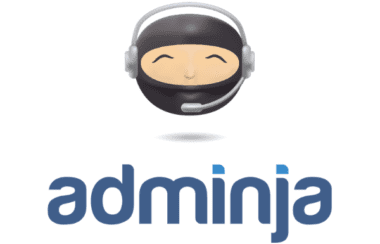Your Guide to Online Course Platforms
By Jena Kroeker
In a recent workshop titled “Discover Ten Ways to Create Online Courses,” Freelance University co-founder, Craig Cannings, discussed how the demand for online learning is now skyrocketing as a result of the global pandemic. It was already a growing field for freelancers and shows no signs of slowing down.
You may have noticed speakers and authors beginning to share their knowledge online as in-person conferences are cancelled. They may be asking you to share ideas on how they can generate income. Maybe you suggested creating online courses as a possible option.
Indeed, as Ilker Koksal says in his article, “The Rise Of Online Learning,” there are many advantages to online courses. For example, he says time and cost structure make online learning a convenient and affordable option. He explains, “This represents a huge opportunity for entrepreneurs to increase their knowledge assets rapidly.”
But how can you best deliver this knowledge through online course platforms? Here are a few options to consider along with their pros and cons.
Your Quick Guide to Online Course Platforms
Thinkific

Screenshot via https://www.thinkific.com/
This powerful course platform is Freelance University’s favorite. It’s an all-in-one solution that lets you build, market and sell courses while at the same time supporting your students.
Price: Free plan available, and paid plans start at $49/month (discounts with annual billing).
Pros:
• Up to three courses included in Free plan
• Unlimited courses included in paid plans
• Unlimited number of students in all plans
• Simple drag and drop builder to organize course material
• Ability to fully customize your learning platform with the paid plans
• Great support, always open to new feature suggestions
• No transaction fees
• Accepts all credit cards for course payments
• Extensive marketing and email tool integrations
• Direct ActiveCampaign and Infusionsoft integrations
• Built-in analytics or integrated analytics via Google Analytics or Mixpanel
Cons:
• No tool integration on Free plan
• Thinkific branding on courses when using Free, Basic, and Pro plans
• No Priority Support included in Free and Basic plans
Teachable
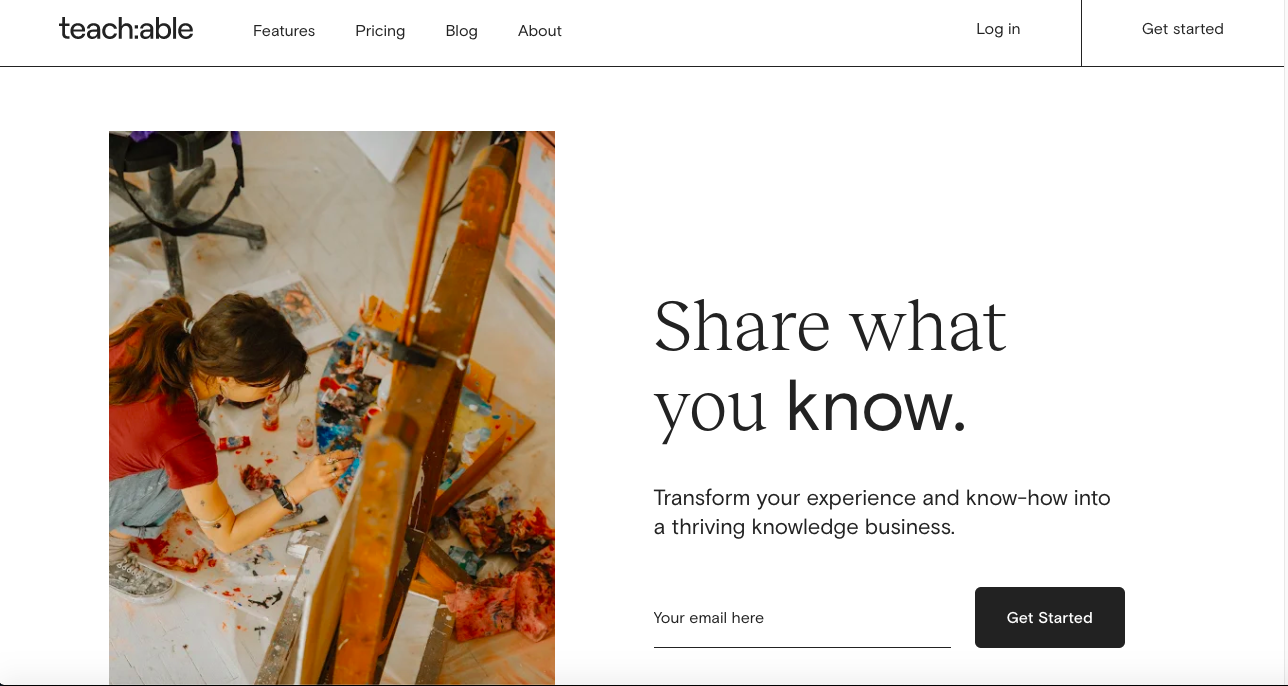
Screenshot via https://teachable.com/
Teachable is one of the most easy-to-use online course platforms that lets you customize your courses, sell them, and hold live coaching sessions with your students.
Price: Free plan available, and paid plans start at $39/month (discounts with annual billing).
Pros:
• Unlimited courses, video and hosting included in both free and paid plans
• Unlimited students included in paid plans
• Ability to customize courses using the power editor
• Ability to track student insights and sales using dashboards
• Extensive tool integration
• Affiliate marketing and email marketing tools included in Professional and Business plans
• PayPal and mobile pay options available for course payments
Cons:
• Live chat and email support only available with Pro and Business plan. Basic and Free Plans just have email support.
• 5% transaction fees on Basic Plan and $1 + 10% on Free Plan for paid courses
• Only 10 students included in Free plan
Podia
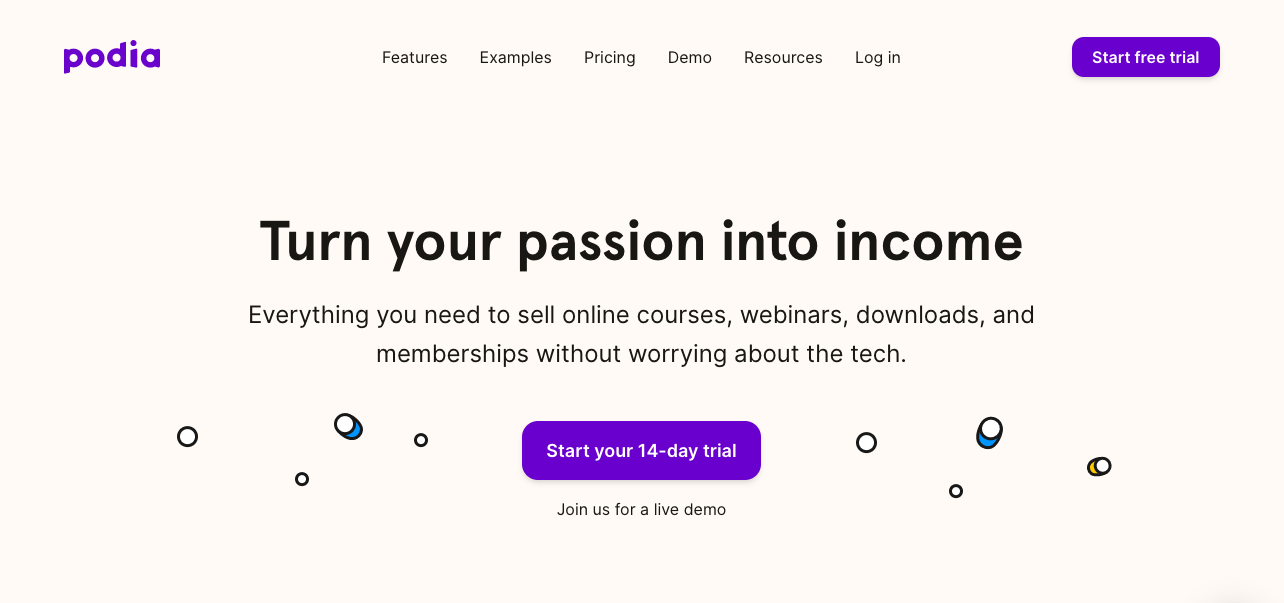
Screenshot via https://www.podia.com/
This all-in-one platform replaces more than five tools for the price of one by allowing you to offer online courses, memberships and digital downloads, as well as email marketing and affiliate management.
Price: Mover plan is $39/month, and Shaker plan is $79/month (discounts with annual billing). A 14-day free trial is available.
Pros:
• Has less expensive plans than other online course platforms
• No limits on numbers of customers, products, sales, files hosted, and emails sent
• The only product platform with an integrated live chat tool to message with students and potential customers
• No transaction fees
• Live chat, email or video support available 7 days a week
• Extensive tool and app integrations including payments processed through Stripe and PayPal
Cons:
• No free plan available
• Fewer plan options to choose from
Kajabi
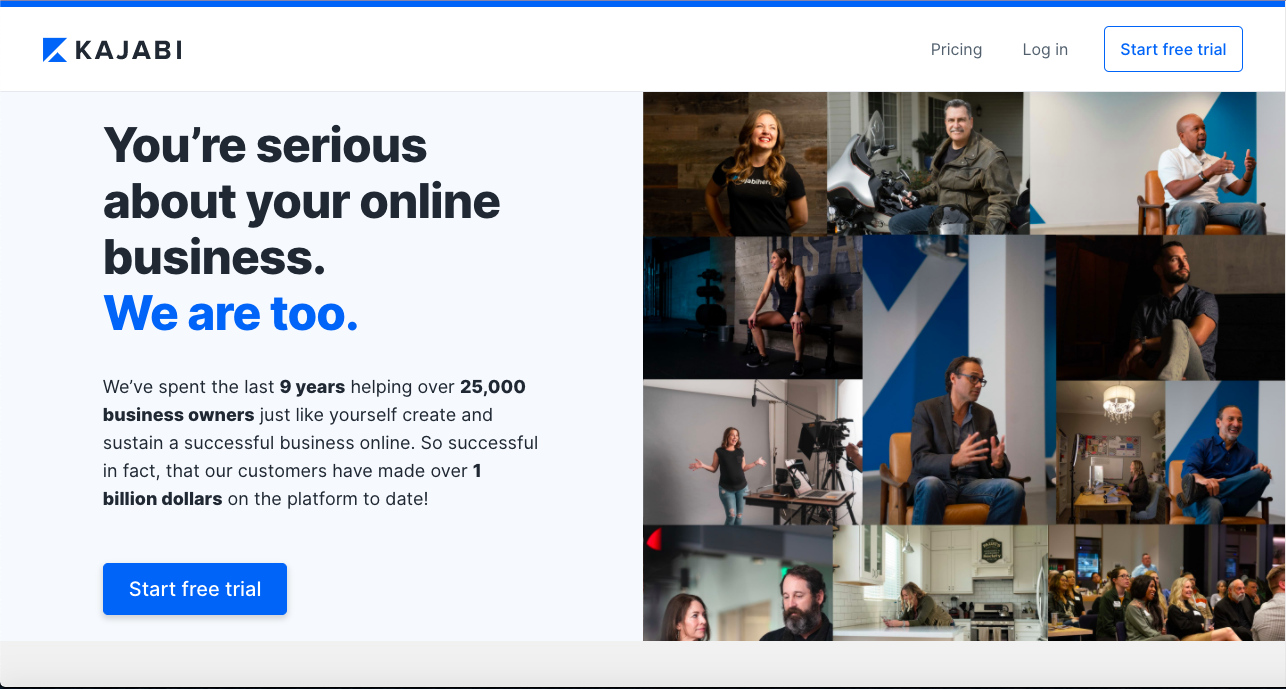
Screenshot via https://kajabi.com/
Kajabi is another platform that streamlines your course creation and marketing experience by allowing you to use a single dashboard to access your products, website, community and marketing.
Price: Plans start at $149/month (discounts with annual billing). A 14-day free trial is available.
Pros:
• No transaction fees
• Has a mobile app students can use to access content
• No plugins or integrations required, but will work with your existing tools if needed
• Integrates payments with Stripe and PayPal
• Ability to create courses using Kajabi’s one-click templates or by building your own template and uploading content
• Ability to keep track of your leads by making personal notes and tagging people based on their behavior
• Includes email marketing tools and automations, as well as business data insights
Cons:
• More expensive than other course platforms
• Kajabi branding on courses when using Basic Plan
• Some limits on the number of products and members
Ruzuku
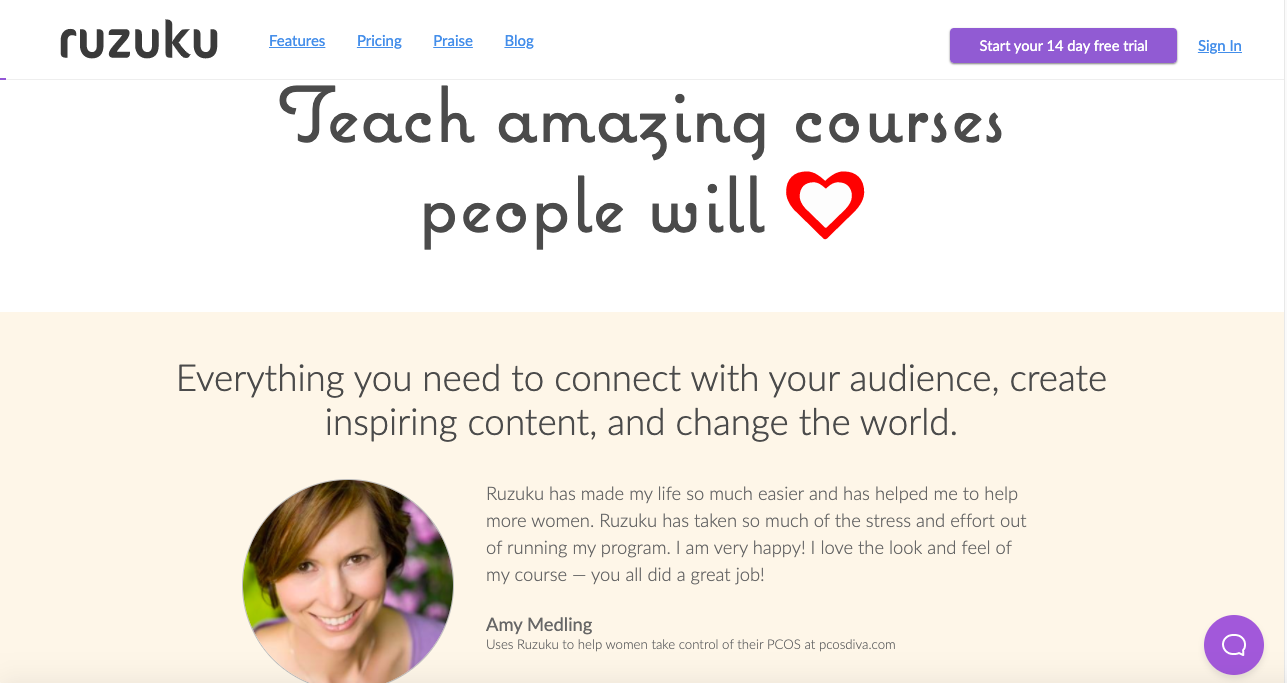
Screenshot via https://www.ruzuku.com/
This simple platform is geared to heart-centered entrepreneurs and emphasizes community and inspiration among instructors and students.
Price: Plans start at $99/month (discounts with annual billing). A free 14-day trial is available.
Pros:
• No transaction fees
• Unlimited courses and students on all plans
• Unlimited video, audio, and data hosting
• Direct payment from customers using Stripe or PayPal
• Comprehensive support for all plans
• Includes a free 20-minute consultation for feedback on your course design, as well as a private Facebook Group with Ruzuku instructors so you can find course partners and share ideas
Cons:
• More expensive than other course platforms
• No free plan available
• More limited integrations
• No email marketing and affiliate marketing tools included
And there you have it – your quick guide to online course platforms so you can select the one that best suits your business or your clients.
Online learning shows no signs of disappearing anytime soon. And during this era of physical distancing, it brings us together virtually in ways we never could before, allowing us to greatly expand our customer base. In an article titled “How to Use Online Learning to Market Your Product,” Kyriaki Raouna asserts, “It raises awareness about your product and offers access to learning content related to your product to a larger network of people around the world.”
So, which online course platform is your favorite? Please share your thoughts in the comments below!

























































